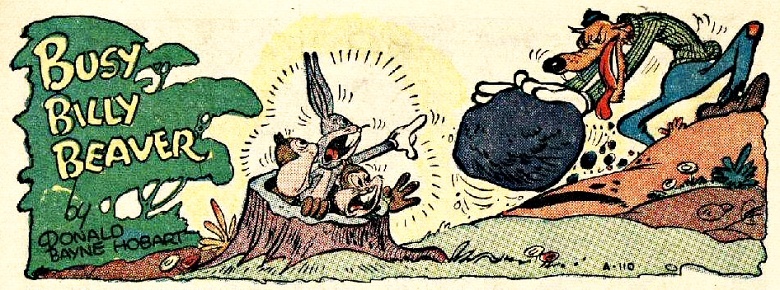Thursday, January 31, 2019
Wednesday, January 30, 2019
Tuesday, January 29, 2019
STEVE DITKO on "The Enchanted Planet" (1959)
Monday, January 28, 2019
Sunday, January 27, 2019
Mickey Spillane's Second MIKE DANGER Story (1954)
Friday, January 25, 2019
Forgotten Books: POST OAKS AND SAND ROUGHS by Robert E. Howard (1990)
My Howardiana saga continues.
As Forgotten Bookers may recall, this journey began with Don Herron's Famous Someday (HERE), which I enjoyed, prompting me to read the L. Sprague de Camp-led biography Dark Valley Destiny (HERE), which I found informative but pompous.
Dark Valley Destiny made heavy use of Howard's autobiographal novel, Post Oaks and Sand Roughs, which de Camp called "unpublished and unpublishable." Back in the '70s, when I had Howardmania, Post Oaks sounded the Holy Grail of Howard scholarship. I wanted badly to read it, and it was frustrating that every scrap of his unfinished fiction and juvenalia was finding its way into print, but Post Oaks was reserved for the privileged few.
Dark Valley Destiny renewed that interest, and I was pleased to discover Post Oaks had finally been published in 1990. But there were only 850 copies, and now commands at least $145. So I went the cheap route, getting it through InterLibrary Loan, and finally got to see what I'd been missing.
First off, as de Camp and others in the know intimated, it's a ridiculously bad novel. So bad, in fact, that much of it bored me - something I'd have thought impossible from REH. The book was written early in his career -circa 1928 - but he had already proven himself as a storyteller. So why did he make absolutely no effort to fashion a plot?
What he did, it seems, was to sit down and bang out a very thinly disguised memoir of his life at the time. The only thing that makes it a novel is that he wrote in third person, casting himself as "Steve Costigan." The focus is on his struggles to break into the writing game, the jobs he endured until making it, and his up and down relationship with friends he rarely saw. He simply wrote what happened, in the order it happened, and went into great detail about how it made him feel.
What "Steve" feels is mostly anger and resentment (at editors, townspeople, interlopers, employers, imaginary enemies, his friends, society and the universe in general) with occassional ecstacies brought on by sales of stories or drinking bouts with his friends (when he's not mad at them). That's it. Nothing really important happens. In the last twenty pages, he tacked on a scene of fictitious wish fulfillment - in which he calls his boss a "son of a whore" and punches him repeatedly in the face, to the horror of his fellow employees. "Steve" then boards a bus out of town, saying he's going "to Hell." Sadly, bad as that scene is, it's the best in the book.
Of course, to folks interested in Howard's career and character, there's plenty here of interest. We're led step by step through his early submissions, rejections and sales, and privy to his highs and lows. And it's always clear what he's talking about. Weird Tales, for example, is called Bizarre Stories, and "The Shadow Kingdom" is "The Phantom Empire."
One of the more interesting aspects of the book is what's missing: his mother. Though we know she was the central figure in Howard's life (and death), she gets hardly a mention here. We're told in an offhand manner that she paid for his board at college, financed a trip to New Orleans, bought him clothes and objected to his playing football, but she never appears onstage, and there's no mention of his attachmnent or devotion to her. It's as if realized there was something unnatural in that relationship, making the subject taboo.
One surprising angle is Howard's candid critigue of the character and behavior of his two closest friends. At points, his evaluation is so brutal that had the book been published, those friendships would have been destroyed.
The biggest surprise, though, is that "Steve" is perfectly self-aware that his behavior and attitudes are antisocial and often bizarre. Even as he's ranting about imagined slights and lurking enemies (things we're told REH took very seriously), his stand-in knows they're not real, and doesn't blame people for thinking he's crazy. "Steve" even knows that his autobiographical novel (yes, he's writing one too) will never sell, because it's not the sort of thing anyone would want to read.
Which brings us to the biggest mystery of all - why the heck did Howard write this thing? He had to know it had no chance of being published. Why didn't he just write a memoir, instead of framing it as a novel? Was it somehow cathartic to record what was going on in his life? He could have done that with a diary. It's almost as if he knew he'd be famous someday, and wanted to leave a revealing document for posterity. If that was his goal, I suppose he succeeded.
Though Howard's addictive and often poetic style occassionally shows through, Post Oaks and Sand Roughs is not a pleasant read. But there's still enough of interest to make it required reading for Howard fanatics, or former fanatics like me. It deserves to be back in print, at least as an ebook.
Thursday, January 24, 2019
FRAZETTA Goes Coo-Coo (1947-48)
Here's another batch of FF's text stories illos, this time from Coo-Coo Comics. These appeared in 1947 and '48. Stay tuned for more.




















































